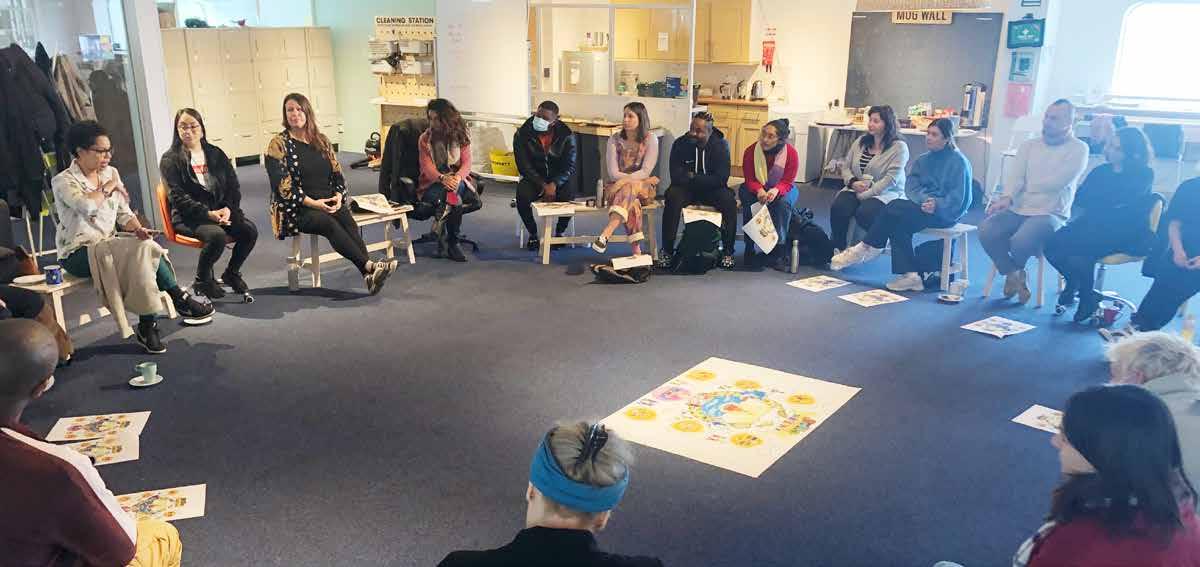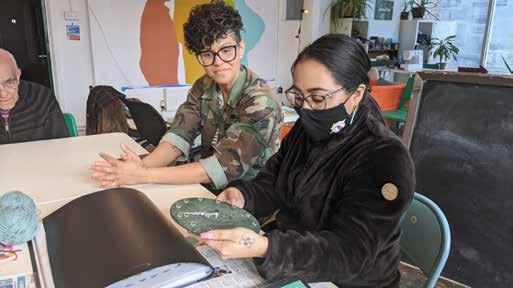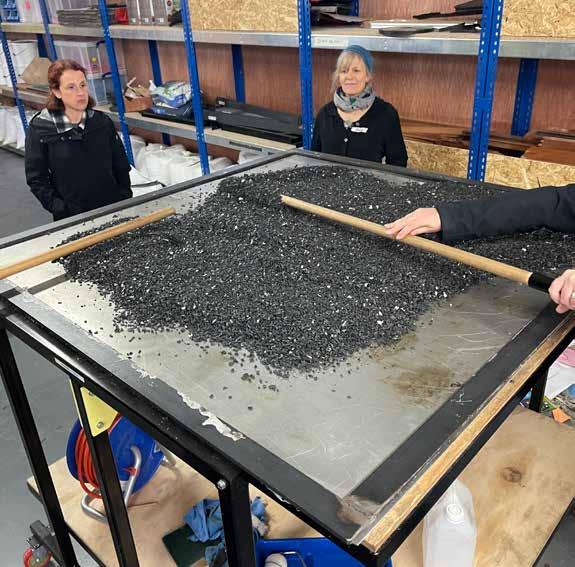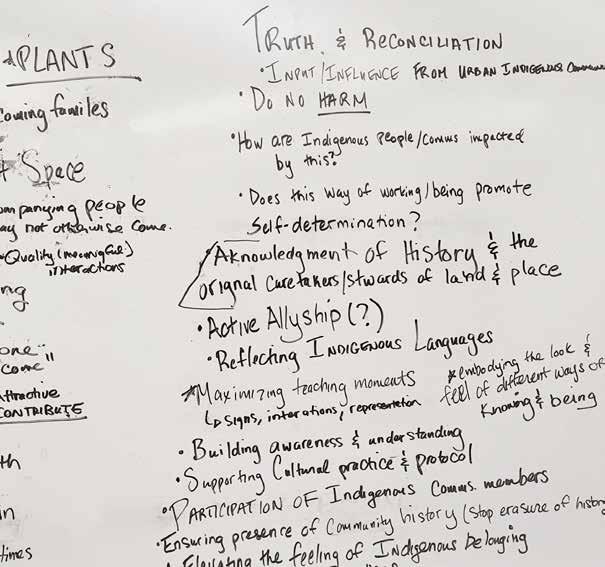
3 minute read
Integrating Learning
An important factor of supporting a participatory ecosystem, is the need for ongoing learning and unlearning, and adapting our strategy as areas for growth begin to surface. As we move through the work, it is crucial that there are many and varied approaches to team learning and development that cover content as it lands. Once the project team was assembled, we began team learning sessions around decolonization and reconciliation, starting with the history of the Mi’kmaq after European contact and the significance of our Living Treaties. This learning will make up a large part of the Reconciliation Framework we are building.
Another key area for team learning and development is around participation culture and how it can be integrated here, in Kjipuktuk-Halifax. The UK Team helped to develop our understanding of inclusive, and meaningful participation, and helped us to fully realize the potential it has in building social infrastructure that is designed for everyone.
Learning with Participatory City (PC) and Every One Every Day Barking & Dagenham (London, UK)
• Study Trip to the Every One Every Day Project in
Barking & Dagenham, East London—A one-week intensive learning experience where we visited four
Shop locations and the Warehouse (35,000 sf public access makers space), for in-depth experiential learning and sharing across contexts.
• Halifax Learning Camps—The Halifax Learning Camps offer in-depth learning from Participatory City’s set of approaches, but in the local context.
• Coaching from PC City Tutors—Virtual tutoring sessions have been monumental for our team learning since day one, and continue to be an essential space for questions and dialogue surrounding both theory and practice.



Facilitated Learning & Reflection
• Truth and Reconciliation Sessions—Centering Truth and Reconciliation in our work calls for each team member to take a deep dive into the sometimes-uncomfortable places in our consciousness to consider the systems and relationships we hold and how they could possibly contribute to furthering the colonial agenda. Once our team was fully formed, we made it a point to begin collaborations with local Elders and community members to engage in decolonial learning and practice, and become more knowledgeable about the First Peoples of these lands.
• Health & Safety, First Aid & Crisis Intervention—As
Every One Every Day is a mainstay for the community it is important that all of our team members are up to date with First Aid learning, crisis intervention skills, and food safety. Since opening the Shop, we have also surfaced other opportunities for training, especially concerning care and assistance for mental health crisis.
• Development Camps—Development Camps following each program cycle provide structured time for the team to engage in refelction & sense-making while also identifying needed adaptations and future strategy. Our first Development Camp was generative and productive - allowing space to build a set of values and practices related to team culture, co-creating project frameworks as a team, and engaging in planning around partnerships and platform expansion.
Learning with & from Ecosystem Partners
• Informal learning and partner gatherings (emerging)—Every One Every Day partner gatherings are an opportunity for contributors, from all reaches of our growing ecosystem, to be together and participate in ceremony and in-depth conversations, from the ground to the strategic level, and gain further insight into our individual contributions and shared vision.
Our first partner gathering in late fall is the start of a new approach to systems building that we wish to continue as we grow together in the work.
Personal Learning & Discovery
• Learning and synthesizing evaluative thinking among team members—There is a need to integrate evaluative thinking more fully in our work culture and individual mindsets. Because we are always researching and adapting our strategies, approaching our interactions and tasks with a critical evaluative lens is of great benefit to our program, and as a deep demonstration campus.
• Monthly team reflections—Starting in April, our team has consistently given their personal insights through a monthly reflections template. These insights are used to address any emerging concerns with the
Shop, program, or team processes, and also offer a place for team members to journal their own personal development as a team member and as a contributor to the participatory ecosystem.











